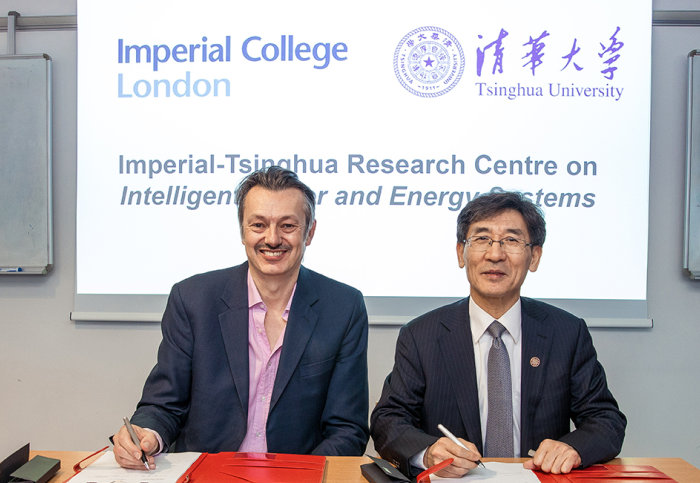New UK/China energy research centre created

Imperial and China’s Tsinghua University have launched a new energy research centre.
The Imperial-Tsinghua Research Centre on Intelligent Power and Energy Systems will focus on tackling common challenges faced by the UK and China in providing secure, low-carbon power systems.
The centre, which will bring together academics from several departments, will focus on using next-generation technologies and intelligent control strategies to drive a, cost effective, transition to a low-carbon power and energy system.

China is a leading light in the deployment of new technologies to improve energy systems. The Chinese electricity grid has pioneered Ultra High Voltage for long distance transmission, collects a vast amount of data about their systems and has a huge installed base of renewable. However, the huge challenge is decarbonising the system while supporting economic growth and the trend towards urbanisation.
Conversely the UK has made huge progress in driving down the carbon intensity of its electricity system and is a global example of how to manage renewable-dominated systems. However Britain faces issues around system resilience and the implementation of grid scale energy storage. It is these complementary experiences and expertise that will form the basis of the research centre. It will focus on how to build smart and sustainable power and energy systems.

The centre is just the latest collaboration between the two world-leading universities. In 2017 Imperial and Tsinghua University launched a seed fund for early stage science.
They have also previously worked on three very successful research projects Business, Economics, Planning and Policy for Energy Storage in Low-Carbon Futures, the Role of Energy Storage in Enhancing Operation and Stability Performance of Sustainable Power Systems and Integrated Operation and Planning for Smart Electric Distribution Networks.

Building on these successes the centre will be a true hub for research, combining technological solutions and a wide range of experiences and knowledge. Key to this will be exchanges of academic staff, researchers and PhD students between the two institutions and engagement with industrial partners from both countries.
“I am delighted that Imperial has been able to create this joint research centre, I think that international collaborations are great ways to expand our outlook and bring in new ideas,” says Professor Tim Green, Co-Director of Energy Futures Lab, who signed the agreement, “Both sides have much to contribute to our understanding of how we can transform the world’s energy systems.”
The joint Research Centre will cover key research topics such as:
- Advanced whole-system analysis low-carbon and resilient power and energy infrastructures and the role of smart data systems to support this;
- Analysis of the role and value of flexible distributed energy resources;
- Advanced AC/DC technologies in local micro-grids and global mega-grid electricity networks;
- Data driven control and design of future power and energy systems;
- Advanced technologies and decentralised control concepts for active distribution networks/micro-grids enhancing the resilience in local/urban areas;
- Interactions between heat, gas, transport, electricity and water systems;
- Information security technology of energy networks facing future cyber physical system;
- Policy, business and market models for intelligent, decarbonised and resilient energy systems;
Article text (excluding photos or graphics) © Imperial College London.
Photos and graphics subject to third party copyright used with permission or © Imperial College London.
Reporter
Neasan O'Neill
Faculty of Engineering